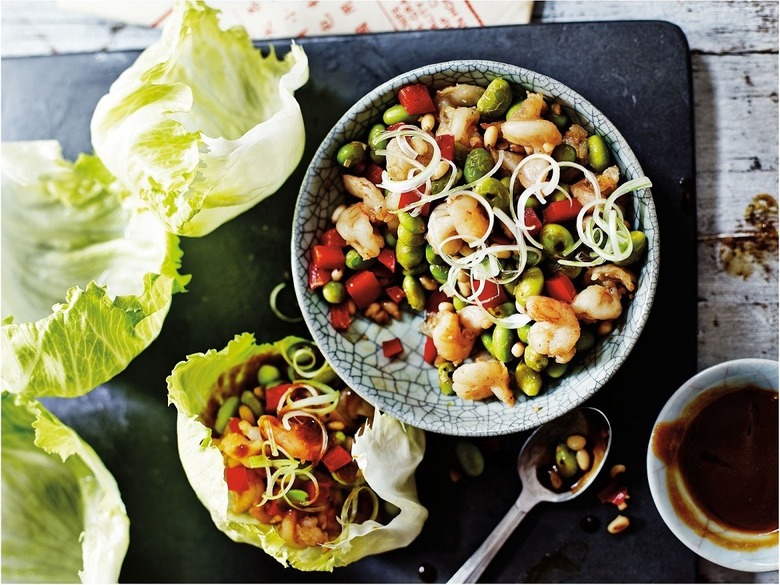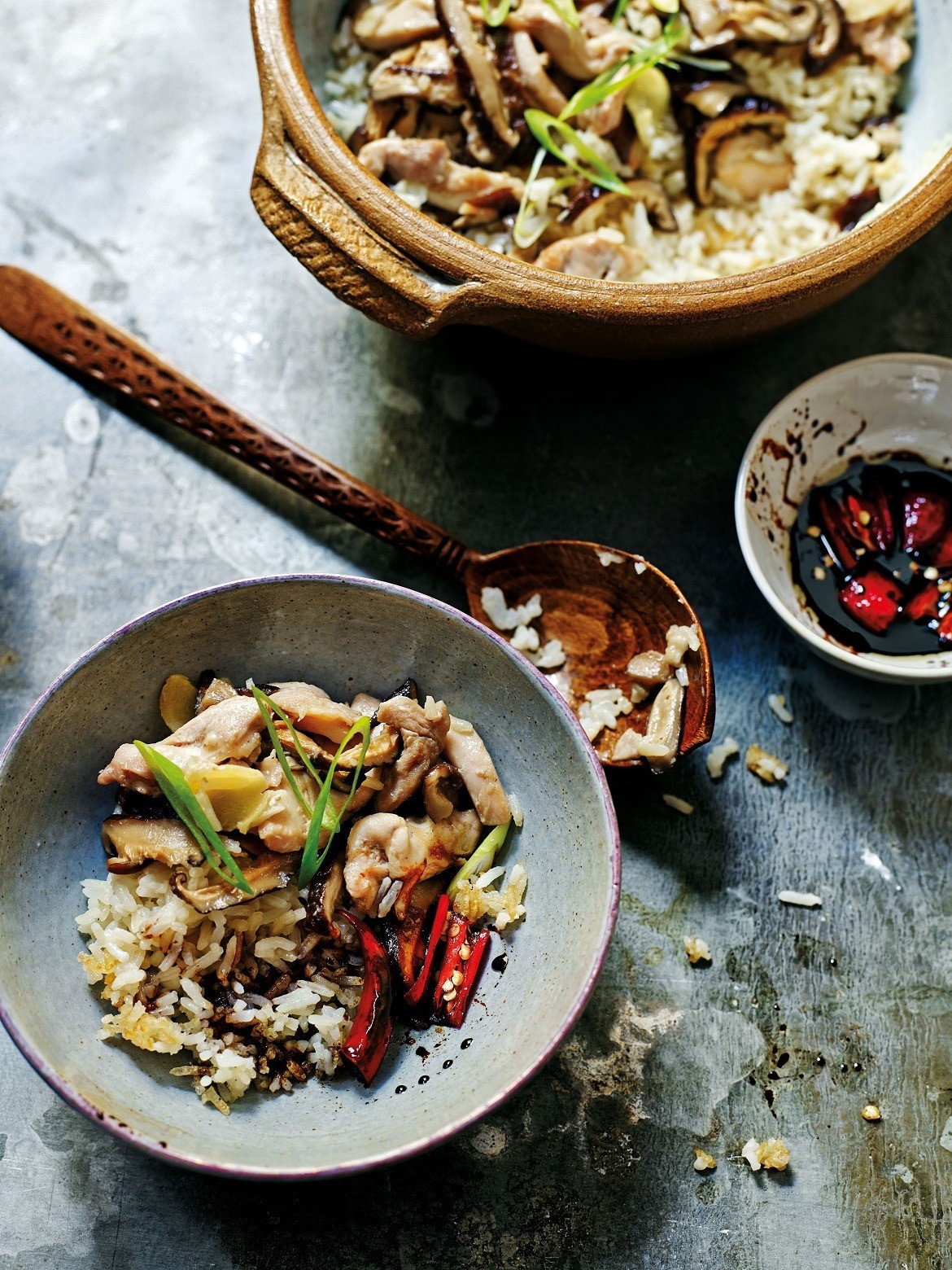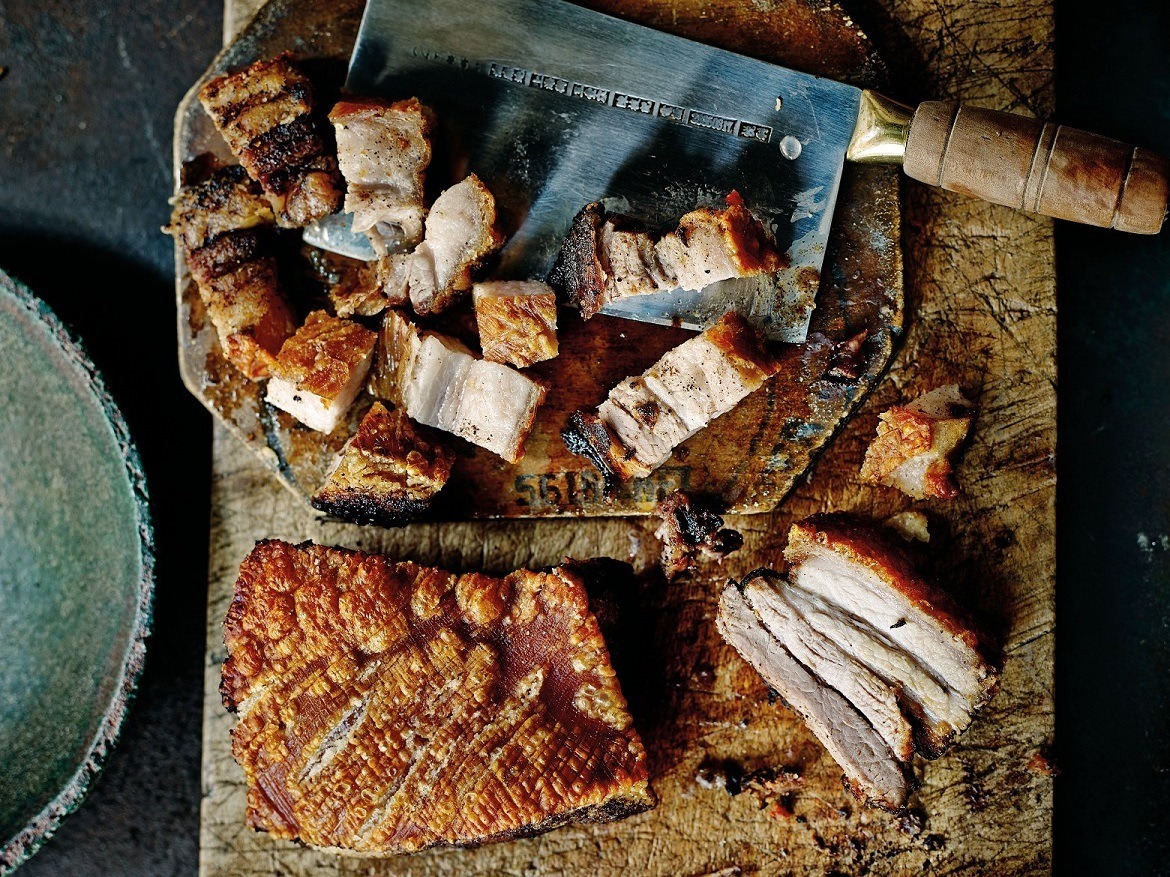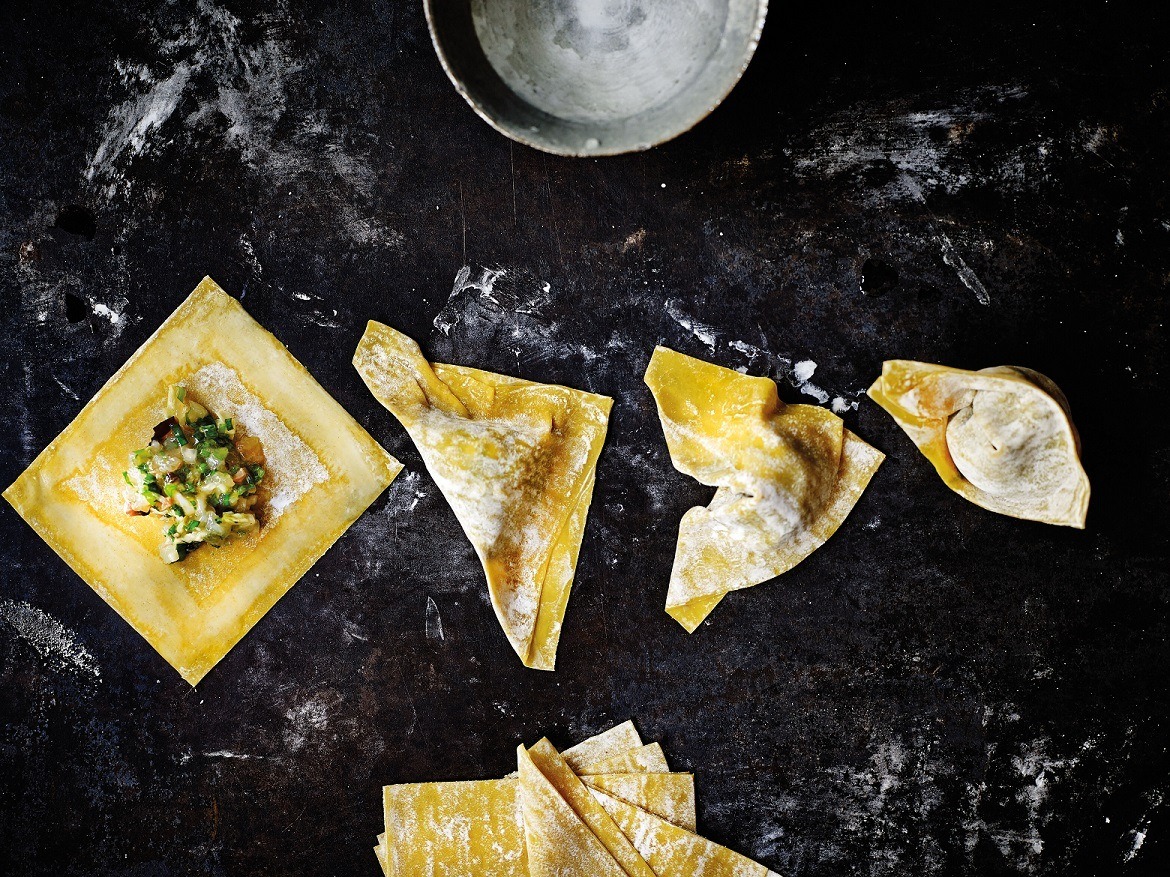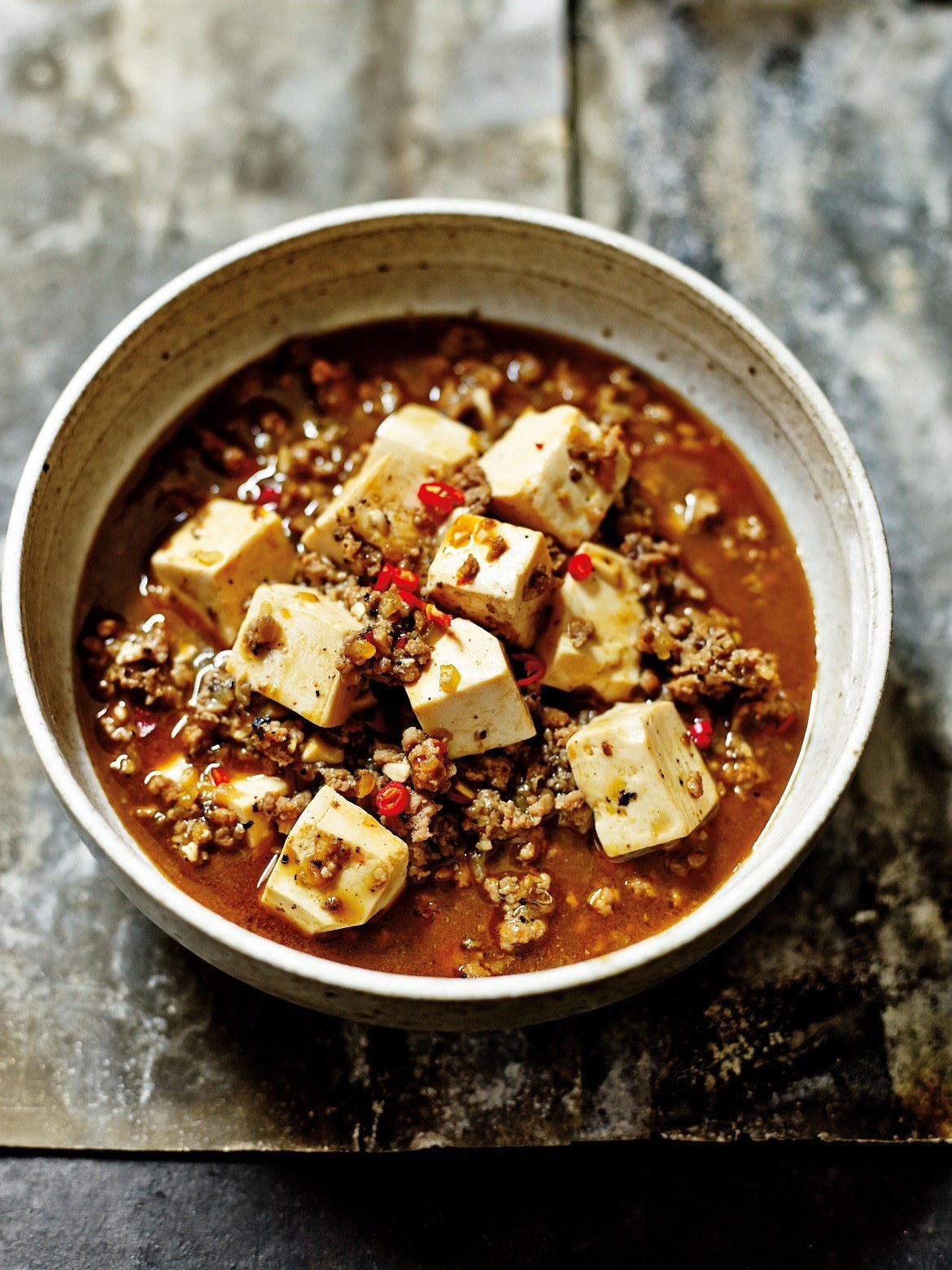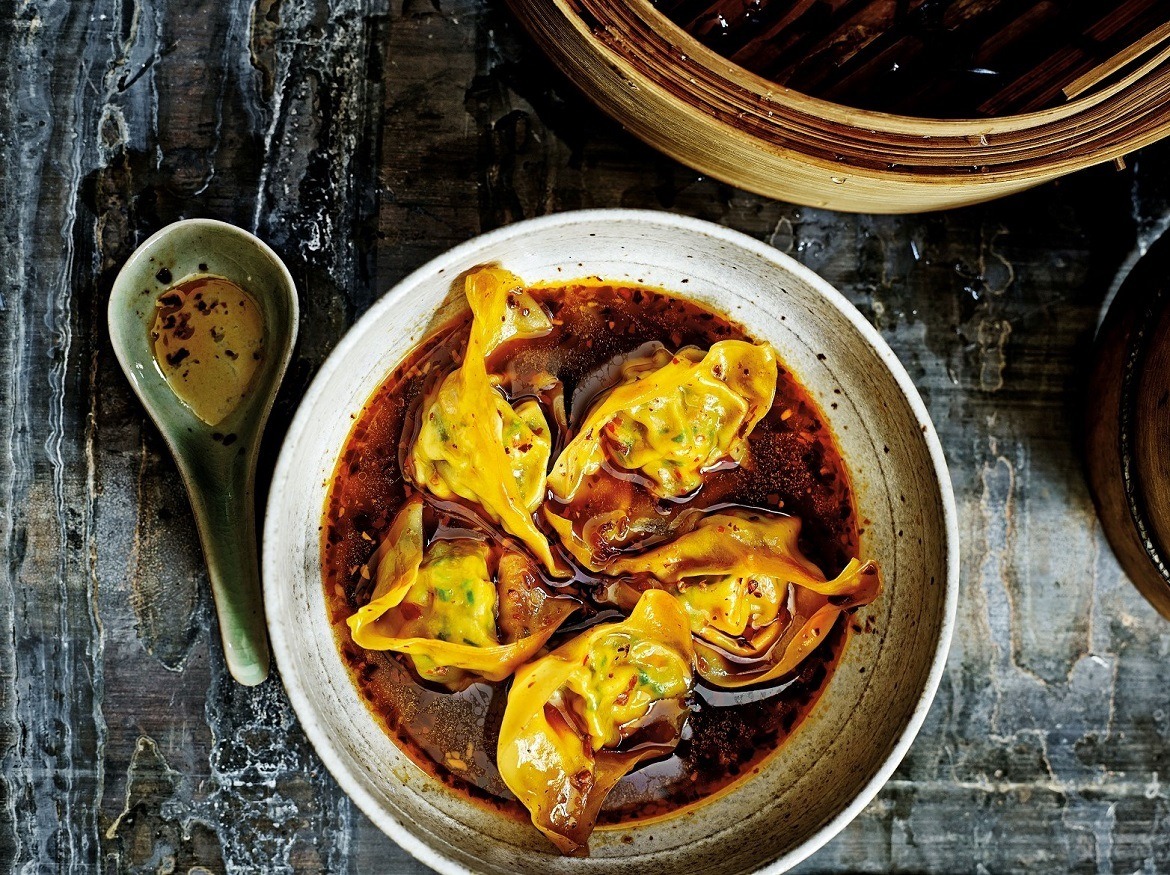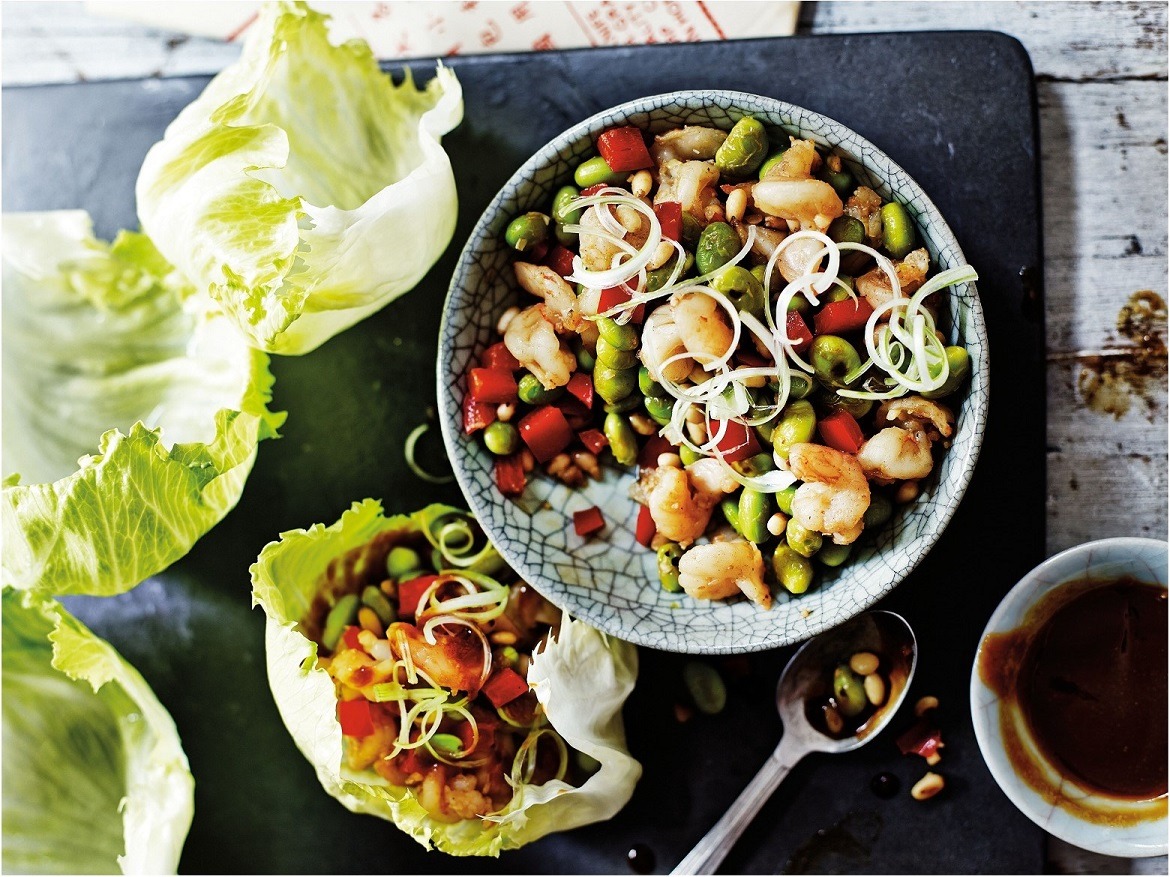Essential Chinese Cooking
We may receive a commission on purchases made from links.
The pages of Essential Chinese Cooking, by Jeremy Pang, are filled with colorful photographs of delicious looking food. A culinary teacher and the founder of School of Wok in London, Pang is exactly the person you need and want to teach you the basics of Chinese cooking.
Pang comes from three generations of Chinese chefs and developed a passion for food early in life. While Pang was growing up, his father refused to teach his "Chinese kitchen secrets" — instead, as Pang writes, he made his children watch as he "skipped across the kitchen with cleaver, board, and wok and got to work. Twenty minutes later (and far too fast for us to work out what happened) dinner would be on the table." Pang's father would then make his children guess what ingredients had gone into their dinner, a daily palate training that led Pang down the culinary path to where he is today.
Being a British-born Chinese chef, preservation of his Chinese cultural identity and culinary traditions is important to Pang. To share his knowledge and pass it along to others, he made the decision to start the (award winning) School of Wok Asian and Oriental Cookery School as a way to teach people how to cook authentic Chinese food in their own homes. From sushi making and Chinese takeaway classics to Chinatown walking tours and "Understanding the Wok," classes offered at School of Wok cover a variety of subjects.
In Essential Chinese Cooking, Pang outlines essential techniques throughout the six chapters, introducing ideas like the "Wok Clock" — a way of organizing ingredients on a plate before you cook them to save time and energy while cooking and help home cooks take a leap forward when it comes to Chinese cooking techniques. The recipes throughout the book are filled with additional notes and suggestions to help with any hard-to-find ingredients and substitutions.
Some of the recipes included in the book are:
— Clay Pot Chicken and Mushroom Rice With Chili and Garlic Sauce
— School of Wok's Stir-Fried Sichuan Chicken
— Steamed Wontons in Chili Broth
— Stir Fried Shrimp, Edamame, and Pine Nut Lettuce Wraps
Jeremy Pang is the author of Essential Chinese Cooking and the founder, co-owner, and head chef of London-based award-winning School of Wok.
The Daily Meal: What is your philosophy of cooking (and/or eating)?
Jeremy Pang: Family and friends are at the start of every recipe for me. Keeping comfort food in mind at all times, but not forgetting that food can always be playful and exciting. Personally, cooking is a form of relaxation. There is a reason why my house is more of a 3-bedroom kitchen that makes up our home! If you cannot relax whilst cooking, then there is either something that you are doing wrong, or maybe you've been in a kitchen that has lacked inspiration or if in the industry, been with a head chef that doesn't actually enjoy cooking and just sees it as a job. Once you relax all your shoulders you are bound to start to chop, wok and roll the right way.
How did it inspire the recipes you chose to include in this book?
The whole purpose of my first book, Essential Chinese Cooking, is to give people enough confidence to feel relaxed when cooking Chinese food at home by simplifying the explanations of what I believe are the 6 or 7 core techniques of Chinese cooking: stir frying, steaming, deep frying (which a lot of people are petrified of doing at home but shouldn't be), braising and poaching, roasting, and double cooking. To help people build their confidence, the recipes then followed into each of the categories, giving readers a real understanding of the types of dishes they could be cooking quite easily at home if they were able to sit and take in the general tips and tricks of each technique.
Also, when writing the book, although we had time pressures to get it done, it was very important to me to be in a relaxed mood whilst writing each and every recipe, and I think that is also a big reason for the success of the final outcome.
What is your favorite recipe in the book and why?
Ooh, that's a tough one. There are some recipes in there that have been passed down the generations and others that I have completely made up myself, but food for me is very nostalgic, so I would probably pick the crispy belly pork as it's something I do tend to get a craving for most days and it reminds me of my dad. It's also a guaranteed crowd pleaser, unless your guests are vegetarian of course!
What are some of the foods you can't live without?
Rice for sure... In Cantonese, there is a saying for people like me: We are 'Faan Tong' or 'rice bins'... so long as we have rice to mop up the sauces with our meal, we will always be satisfied!
Would you rather dine out or cook at home?
I love dining out, especially the enjoyment of sharing and making an occasion of it with friends and family. But if I were to choose between the two, I much prefer to cook at home. There is something incredibly satisfying about cooking a wholesome meal for others and hearing or seeing their excitement... People make funny noises when eating — it's that split second of immediate joy when the food hits their palate that makes cooking for someone that much more enjoyable. In a restaurant, we interact with our plates much more than with the person who cooked it, which is where the difference lies in my view. Restaurants are a barrier to that immediate appreciation.
What is your favorite go-to meal or drink?
Haha... Do you want the truth or for me to say something fancy? If we are sticking down the Chinese theme, simple cooking is best, so my go-to meal to cook at home for myself would be clay pot chicken and mushroom rice with some chili and ginger soy. For normal people, this would be a meal for two, but when I cook this at home, I can happily keep a whole clay pot's worth for just me. It's the crispy rice grains on the bottom of the pot that make it so inviting. Try it — page 98 in the book.
Of course, if we are talking quick meal or midnight snack, then that's different. Aside from the odd craving for a pack of dolly noodles (most Chinese will share this craving I'm sure). Quite simply, a ham and fried egg sandwich — over easy egg, placed into 2 slices of well buttered cheap white bread, along with a slice or two of good ham, finished in an old school skillet pan (my dad's omelette pan worked best, but sadly, become so over-used it had to be thrown away) fried lightly in butter on both sides. Don't forget to push down on the sandwich once or twice whilst frying the bread so as to break the yolk slightly. And if you want the added effect of pretending it was made by my very own dad, make sure to cut the sandwich into quarters before serving, to show off the oozing yolk — then eat it quickly before anyone else gets to it! You might not believe it, but this is the type of food that we get in Hong Kong breakfast diners — along with milk tea and instant noodles, or toast with condensed milk!
Drink? A good old English "cuppa tea" — "builders brew" with one sugar. Splash of milk, no more. Tea goes a long way in both English and Chinese culture. Maybe that's why I like it so much. Best of both worlds I guess? After all, I am a BBC (British Born Chinese).
How do you hope readers will use this book, what do you hope they take away?
When the book first came out, my initial hope was that it would not just sit on the coffee table on even worse, on the book shelf, looking pretty. I now know, from a lot people who have kindly bought Essential Chinese Cooking, that they really aren't scared of getting it messy. I feel proud that people in all countries are really using the recipes and learning the techniques that have been kept secret for many years. My biggest achievement with this book is that it helps people to build their confidence in cooking a cuisine that has been cooked for them for many years, but maybe not quite explained in a simple enough form. I honestly believe that if you understand those 6 or 7 core techniques of Chinese cooking, it will enable you to cook hundreds of dishes. Much like our classes at School of Wok; if it inspires you to cook Chinese food more often at home, then my job is done!
Is there anything else you'd like to share?
Moving forward from Essential Chinese Cooking and my answer to the above questions, what I hope is that when my next books come out, they will all be very different and have their own unique stance to cooking, but people will always be able to go back to the first book for references on key techniques of this type of cuisine and add to their own repertoire in the kitchen with more confidence and in a relaxed way, using some of the tips and tricks that have been explained in the prose. We are very excited that my second book, Hong Kong Diner, is coming out soon (October 3, 2017, in the U.S. — pre-order here) and hope that your readers will be just as excited to see the finished book as we are!
Thanks to The Daily Meal, for showcasing my recipes — it's a true pleasure to know that my books are becoming popular across the world!
